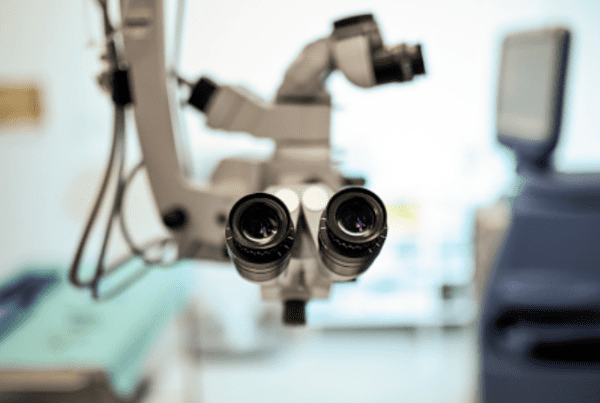Highlights | Welcoming prospective trainees
- Aug. 29 was the fourth annual Diversity Town Hall for UW School of Medicine prospective trainees.
- Hosted by the UW School of Medicine Network of Underrepresented Residents and Fellows, the Graduate Medical Education Office, and the UW Medicine Office of Healthcare Equity, the event welcomes prospective applicants from underrepresented or disadvantaged backgrounds.
- Over 250 prospective residents and fellows joined the event to learn more about what it’s like to be a trainee at UW Medicine.
On Aug. 29, leadership from the UW School of Medicine Network of Underrepresented Residents and Fellows (NURF), the Graduate Medical Education (GME) Office and the UW Medicine Office of Healthcare Equity (OHCE), hosted the fourth annual Diversity Town Hall. This free, virtual event welcomed prospective applicants from underrepresented or disadvantaged backgrounds to introduce them to the School of Medicine clinical residency and fellowship programs. Over 250 prospective residents and fellows joined the event from around the U.S. and around the world.
Event speakers focus on community, diversity and wellness
Ivonne Beltran, MD, R3, Family Medicine, and president of NURF, opened the event. She shared NURF’s mission to promote diversity in medicine through community involvement, education, advocacy, policy, mentorship, professional networking, and the recruitment and retention of those who are underrepresented in medicine (URiM). Beltran and other NURF members spotlighted NURF’s work partnering with allies and allied groups in UW Medicine, building community and celebrating the contributions of our URiM, Black, Indigenous and people of color (BIPOC) members and allies.
Beltran said that as a medical student, she participated in an early Town Hall and was invited to attend a NURF meeting, which played an important part in her decision to rank the School of Medicine’s Family Medicine Residency Program.
“Knowing that organizations like NURF exist within the university and that I could find a community that I could be part of with people that really cared about this mission and people that would be there for me when I needed them the most, was meaningful,” says Beltran.
Building on themes of community, Byron Joyner, MD, vice dean for GME, highlighted the goals of GME and the role residents and fellows play as valued members of the UW Medicine team.
“Trainees provide important, high-quality care to our patients and are essential in advancing our research and educational programs,” says Joyner. “UW Medicine Graduate Medical Education is dedicated to creating a culture of wellness for our trainees and welcoming a diverse community of residents and fellows.”
As part of meeting those wellness and equity, diversity and inclusion goals, Paula Houston, EdD, chief equity officer for OHCE, discussed the importance of recruiting diverse trainees and how groups like NURF play a role in improving learning environments.
“It is important for UW Medicine to prioritize attracting diverse residents and fellows because they often become our faculty, resulting in our ability to advance our mission to have providers who represent the communities we serve,” says Houston. “Additionally, having diverse residents and fellows allows prospective medical students to see themselves represented in the institution, increasing our ability to successfully recruit them.”
Q&A with NURF panelists
Attendees had opportunities to ask questions of a panel including representatives from the GME Office, the Housestaff Quality and Safety Committee, the Resident & Fellow Physician Union – Northwest and NURF, before moving into breakout rooms to meet with leadership and trainees from the specialty and subspecialty training programs.
Jessica Sher, MD, R3, Physical Medicine and Rehabilitation, vice president for NURF, moderated the panel.
“NURF is one of the main reasons why I felt and still feel so welcome and supported at UW, and in Seattle in general,” says Sher.
Here’s what attendees wanted to know and what panelists had to say:
Why did you choose to train at UW Medicine, and how do you think UW Medicine is helping you achieve your career and personal goals?
Adlai Grayson, MD, R3, Interventional Radiology, community outreach chair for NURF, shared that when he was a medical student, he participated in the NURF Diversity Town Hall. He said that experiencing the town hall, and meeting the NURF trainees, faculty and others involved made him realize, “They’re doing all these things for my development – I need to be here.”
Have you been able to find community?
“I’ve been able to find that sense of community with the NURF organization. I joined NURF last year, and during my first year at UW Medicine I attended a lot of the different heritage events and eventually helped organize events — and that, I felt, was very special,” says Eric Rios-Doria, MD, fellow, Gynecological Oncology. “It brought together a lot of levels of training, all in the name of unity and collaboration, to celebrate certain heritage months. On top of that, there was a lot of the faculty there as well. So there was a great opportunity for networking and again to be able to build community.”
Continuing commitment to community
Events like the NURF Diversity Town Hall, with broad participation from UW Medicine leadership and trainees, emphasize the Office of GME’s commitment to building a diverse community at UW Medicine.
“We hear from attendees and prospective trainees how impactful these events are,” says Cindy Hamra, associate dean for GME. “It’s something we look forward to every year and plan to continue doing in the future.”


